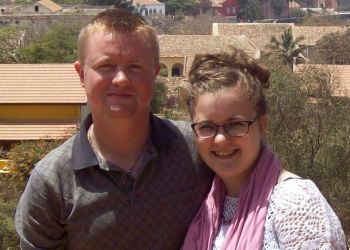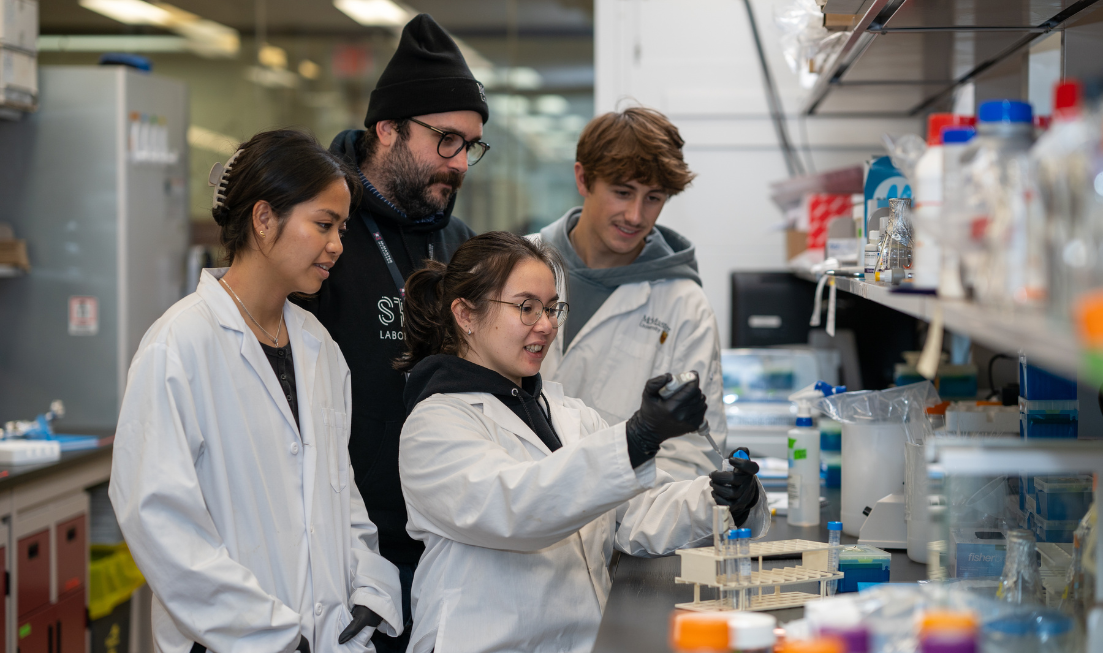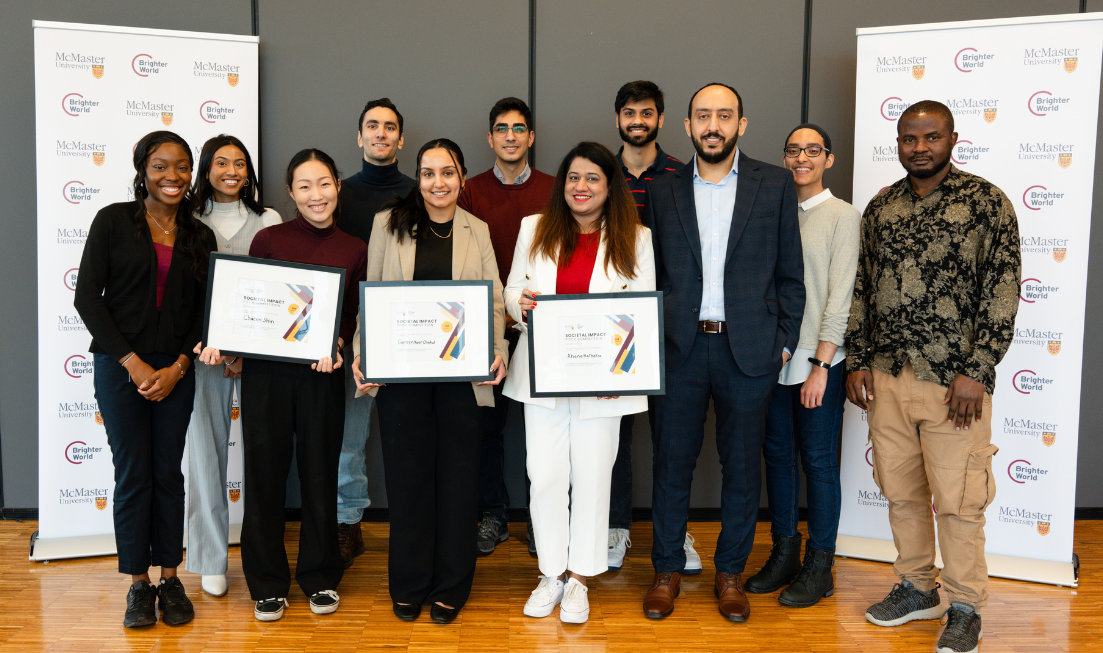MSc Global Health Grad Reviews Adolescent Health Program to Empower Girls in West Africa

Just a few short months after graduating from the MSc Global Health program, David Oldenburger (’15) and his wife Jessica arrived in Dakar, Senegal. For 18 months, they are volunteering as health educators for an adolescent health program that aims to provide girls with access to education about sexual health and reproductive rights for women – and empower them to advocate for change in their local communities.
The Oldenburgers’ main project involves a comprehensive review of the existing health curriculum, which has been in use for over a decade. “As a Registered Nurse, and with the MSc in Global Health still fresh in my mind, I’m combing through 38 lessons and supporting material to identify areas for improvement,” says David. “Jessica has being translating the material from French (the national language of Senegal) to English for me, and then back to French to present to the program staff. Sometimes this process is repeated multiple times, and sometimes it involves the native language, Wolof, too,” he explains, which adds another layer of complexity.
Each week the couple meets with a curriculum committee – peer educators, supervisors, and community engagement coordinators – to identify areas in need of improvement and areas of the curriculum that are working effectively. Following the meetings, David and Jessica implement the changes, and prepare supporting material to train the educators.
“Our goal,” says David, “is to become integrated into the program activities, participate in the lessons, and understand the challenges associated with teaching the material. From there, we partner with stakeholders to identify strategies for enhancing the curriculum and its impact on the adolescent population it serves.”
Through this partnership, David and Jessica are able to share information and teaching strategies that Dakar’s educators may not have access to, or experience with, empowering them with new tools and knowledge.
“Working this way means we can elicit changes that match their needs, in a way that’s sensitive to their beliefs and strongly held values,” explains David. “We present ideas and discuss them; they decide what they want to implement or not.” He has learned first-hand that cultural sensitivity isn’t just a question of being respectful – it has a pragmatic component too. “This is their program and has been for a decade. We’re here for 18 months. If we change something that they don’t agree with, it probably won’t get used.”
On returning to Canada, David’s intention is to pursue a career in public health, likely with a focus on healthy families and communities. “My experiences here,” he says, “will equip me to more effectively evaluate community health needs, work with a variety of stakeholders, apply the holistic nursing perspective, and conduct myself with cultural competence.”
Global Health News
Related News
News Listing

Daily News ➚
McMaster earns top spot for graduate student research intensity in annual rankings
Global Health News
December 9, 2024

December 4, 2024

McMaster University (Global Health) and the University of Global Health Equity (UGHE), Rwanda Sign a Memorandum of Understanding (MOU)
Global Health News
November 28, 2024
